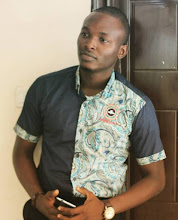Boko Haram: Witness declines as court rejects ‘secret’ trial
A prosecution witness on Thursday refused to testify against suspected members of the Boko Haram sect after an Abuja Federal High Court rejected an application brought by the Federal Government to restrict members of the public from the courtroom during the trial. The witness was slated to testify in the trial of a university don, Dr. Nazeef Yunus, and other alleged members of a Boko Haram cell in Kogi State - Alhaji Salami Abdullahi and Umar Musa. Witnesses involved in recent prosecutions of members of the terrorist sect testify with masks, and their identities are not disclosed, in line with a Federal Government initiated witness-protection programme. Also, members of the public, apart from accredited journalists, are barred from courtrooms during proceedings in terrorism trials. However, following the arraignment of the suspected members of the Kogi Boko Haram sect, their lawyers opposed an application in which the Federal Government sought to have their trial conducted in ‘secret’. Shortly before the witness was called to testify, the presiding judge, Justice Gabriel Kolawole delivered a ruling in which he upheld the argument of the defence lawyers and ordered that “the trial of the accused persons should be conducted publicly,” although he also held that the “identities and names of the witnesses to be called by the prosecution shall be kept secret.” Justice Kolawole noted that by the ruling, the court was protecting the interest of the state, the witnesses and the accused persons. “I am mindful to shield the identity of the witnesses in a sensitive case like this which borders on alleged terrorism. “The general public can only hear the voices of the witnesses but will not see their faces,” he said. In order to shield the witness, a cubicle, which was intended to shield him from people in the courtroom while he gave evidence, was mounted at the witness stand. But the witness, who was afraid that the device would not effectively shield him from members of the public in the courtroom, requested to come out with a mask, a move which was opposed by the lawyers of the suspected Boko Haram members, who argued that the ruling given by the court did not state that witnesses should be masked. As a result of the development, the witness refused to testify. Prosecution counsel, Mrs. C. I. Nebo, informed the court that the witness, who was ready to testify earlier, has refused to appear without a mask. The judge thereafter advised the prosecutor to either appeal against the ruling, or apply for its alteration to enable the court address the issue of masks for the witnesses. The case was subsequently adjourned to May 6. It would be recalled that the Federal Government had in an application brought pursuant to sections 36 (4) (a) and (b) of the 1999 Constitution, and section 203 of the Criminal Procedure Act and sections 33 and 34 of Terrorism Prevention (Amendment) Act, 2013, asked the court to order that persons other than immediate family members and legal representatives of the accused persons, with the exception of accredited members of the press, should be barred from witnessing the trial. The Federal Government in the application also asked the court to order that the real names, addresses, and identity of prosecution witnesses should not be disclosed during the trial to forestall possible reprisal attacks on them by the supporters and loyalists of the accused persons. But in opposing the bid for a ‘secret’ trial, the lawyers of the alleged Boko Haram members noted that the Federal Government, in the application, implied that the accused persons’ supporters and loyalists are members of the Boko Haram sect. Family members, friends and associates of the accused persons always turn out in large numbers whenever the suspects appear in court, and the defence lawyer frowned at the prosecution’s suggestion that those who come to court to show solidarity with the accused persons are terrorists. The lecturer, Yunus, who was alleged to be the spiritual leader and coordinator of the Boko Haram sect in Kogi State, was arrested along with the others in October 2013. The Department of State Services had accused the suspects of planning to carry out an attack in parts of Kogi State before they were arrested at a mosque in Zuba, a town near Abuja, while on their way to Zambisa in Maiduguri, Borno State, for training. The security agency said the suspects planned to install Sharia in Kogi State. The accused persons have denied the charge.








Post A Comment
No comments :
Sharing is caring, click the share button to tell a friend.
Abusive comment to other followers will be disallowed. Please bear with us